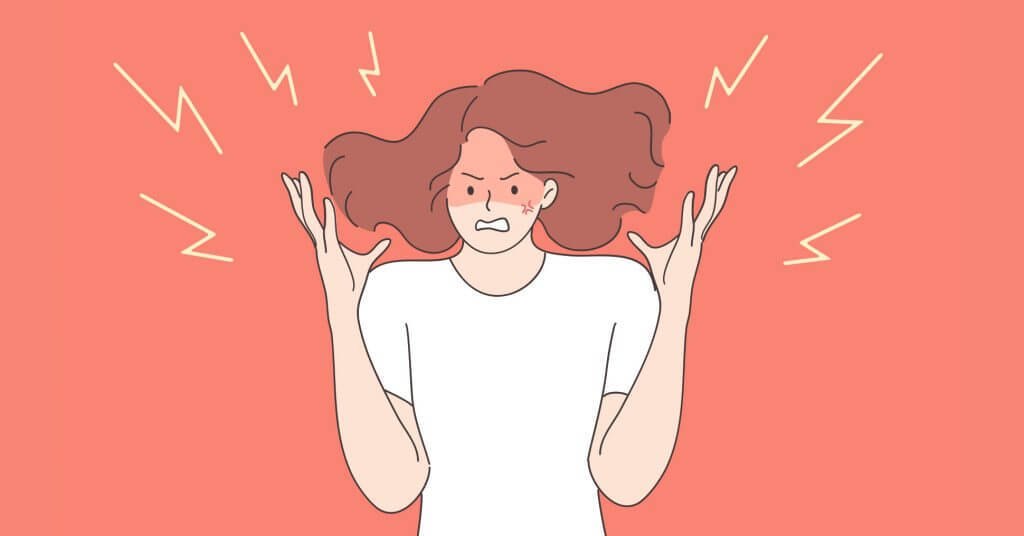Narcissistic Collapse Symptoms

Narcissism is a complex personality trait characterized by an inflated sense of self-importance, a deep need for admiration, and a lack of empathy for others. While individuals with narcissistic traits may present as confident and self-assured, their emotional foundation is often fragile, susceptible to collapse when their carefully curated image of superiority is challenged. This phenomenon is known as “narcissistic collapse.” Narcissistic collapse symptoms are the psychological manifestations that arise when the protective defenses of a narcissistic individual crumble, leaving them vulnerable to intense emotional distress. Understanding these symptoms is critical for recognizing and supporting individuals experiencing this collapse.
What is Narcissistic Collapse?

Before delving into narcissistic collapse symptoms, it’s essential to understand what narcissistic collapse entails. Narcissistic collapse occurs when a person with narcissistic tendencies or Narcissistic Personality Disorder (NPD) experiences a significant blow to their self-esteem. This blow often comes in the form of a major failure, rejection, or any situation that contradicts the narcissist’s inflated self-image. When the narcissist’s ego is no longer protected by their usual defense mechanisms, they can experience a psychological breakdown, which manifests through narcissistic collapse symptoms.
Key Narcissistic Collapse Symptoms

Narcissistic collapse symptoms vary depending on the individual’s underlying personality structure, the severity of the collapse, and the specific trigger. However, there are common symptoms that many narcissists exhibit when they undergo a collapse.
1. Severe Emotional Distress
One of the most prominent narcissistic collapse symptoms is intense emotional distress. The narcissist may feel overwhelming shame, humiliation, or helplessness, as their sense of grandiosity is shattered. This emotional distress can lead to anxiety, depression, or even panic attacks. The narcissist’s inability to cope with these emotions is a key factor in the collapse, as they are unaccustomed to dealing with negative emotions in a healthy way.
2. Aggressive or Hostile Behavior
When confronted with the vulnerability of collapse, many narcissists respond with aggression. Narcissistic collapse symptoms often include increased irritability, anger, and hostility. The individual may lash out at those around them, blaming others for their perceived failures or trying to reassert control. This aggression can be verbal or, in extreme cases, physical, as the narcissist attempts to defend themselves against the perceived threat to their self-image.
3. Withdrawal and Isolation
In contrast to aggressive responses, some narcissistic collapse symptoms manifest as withdrawal and isolation. When the narcissist’s defenses fail, they may retreat from social interactions, unable to face the reality of their perceived shortcomings. This withdrawal can be driven by feelings of shame or fear of further exposure, and it often leads to a cycle of self-imposed isolation, deepening the narcissist’s sense of despair.
4. Depression and Despair
Depression is another common narcissistic collapse symptom. The collapse of their grandiose self-image can leave the narcissist feeling empty and hopeless. This sense of despair is rooted in the realization that their inflated self-perception was a fragile illusion, leaving them with little to cling to. The narcissist may struggle with feelings of worthlessness, and in severe cases, this depression can lead to suicidal ideation.
5. Obsessive Thoughts and Rumination
Narcissistic collapse symptoms often include obsessive thoughts about the triggering event or failure. The narcissist may replay the situation repeatedly in their mind, trying to understand how their carefully constructed image was destroyed. This rumination can become all-consuming, preventing the individual from moving forward or finding closure. The narcissist’s inability to let go of the past event only prolongs their suffering and deepens the collapse.
6. Increased Paranoia and Distrust
Paranoia is another significant narcissistic collapse symptom. As the narcissist grapples with their collapse, they may become increasingly suspicious of others’ intentions. This paranoia stems from their fear of further exposure or humiliation. The narcissist may start to believe that others are out to get them or that people are intentionally trying to sabotage their success. This heightened distrust can further isolate the narcissist and damage their relationships.
The Psychological Impact of Narcissistic Collapse Symptoms
Narcissistic collapse symptoms not only impact the individual experiencing the collapse but also those around them. The psychological turmoil that accompanies these symptoms can create a ripple effect in the narcissist’s relationships, work life, and overall well-being.
1. Impact on Relationships
Narcissistic collapse symptoms can wreak havoc on personal relationships. The narcissist’s aggression, withdrawal, or paranoia can alienate friends, family, and romantic partners. Those close to the narcissist may struggle to understand the sudden change in behavior, leading to confusion, frustration, and emotional distance. In some cases, the narcissist’s relationships may deteriorate entirely, as their collapse causes irreparable damage.
2. Impact on Self-Perception
The narcissist’s self-perception is fundamentally altered during a collapse. The grandiose image they once held of themselves is shattered, leaving them with a fragile and uncertain sense of identity. Narcissistic collapse symptoms force the individual to confront their vulnerabilities, which can be a profoundly unsettling experience. The narcissist may struggle to reconcile their former self-image with the reality of their limitations, leading to a prolonged identity crisis.
3. Impact on Mental Health
The emotional and psychological distress caused by narcissistic collapse symptoms can have long-lasting effects on mental health. Anxiety, depression, and other mood disorders can become chronic issues for the narcissist if left untreated. Additionally, the collapse can trigger other mental health conditions, such as substance abuse, as the individual attempts to cope with their pain. Without proper intervention, the narcissist’s mental health may continue to deteriorate, leading to further complications.
The Role of Defense Mechanisms in Narcissistic Collapse
Understanding the role of defense mechanisms in narcissistic collapse symptoms is crucial for grasping why these collapses occur. Narcissists rely heavily on defense mechanisms such as denial, projection, and idealization to protect their fragile self-esteem. These mechanisms allow them to maintain their grandiose self-image and avoid confronting their vulnerabilities.
However, when these defense mechanisms fail, the narcissist is left exposed to the full weight of their insecurities and inadequacies. The collapse occurs because the narcissist can no longer shield themselves from the reality of their limitations. Narcissistic collapse symptoms are the result of this breakdown, as the individual struggles to cope with their newfound vulnerability.
Triggers of Narcissistic Collapse Symptoms

Narcissistic collapse symptoms are typically triggered by events that challenge the narcissist’s self-perception. These triggers can vary depending on the individual’s specific vulnerabilities, but common triggers include:
- Failure: A significant failure, whether in a personal or professional context, can shatter the narcissist’s self-image. This could be a failed relationship, a career setback, or any situation in which the narcissist perceives themselves as inadequate.
- Rejection: Narcissists crave admiration and validation from others. When they experience rejection, whether from a romantic partner, friend, or colleague, it can trigger narcissistic collapse symptoms. The rejection undermines their need for external validation, leading to feelings of worthlessness.
- Public Humiliation: Narcissists are highly sensitive to public criticism or humiliation. When their image is damaged in a public setting, the narcissist may experience a collapse as they feel exposed and vulnerable to the judgment of others.
- Loss of Power or Status: For narcissists, power and status are central to their self-worth. Losing a position of authority, respect, or influence can trigger narcissistic collapse symptoms as the individual grapples with the loss of their perceived superiority.
Coping with Narcissistic Collapse Symptoms

Coping with narcissistic collapse symptoms is challenging, both for the individual experiencing the collapse and those around them. However, with the right approach, it is possible to manage these symptoms and facilitate healing.
1. Seeking Professional Help
The first and most crucial step in coping with narcissistic collapse symptoms is seeking professional help. Therapy can provide the narcissist with a safe space to explore their vulnerabilities and develop healthier coping mechanisms. Cognitive-behavioral therapy (CBT) and psychodynamic therapy are particularly effective in helping narcissists recognize and address their distorted self-perception. A trained therapist can guide the individual through the collapse and help them rebuild a more balanced and realistic sense of self.
2. Building Emotional Resilience
Developing emotional resilience is essential for managing narcissistic collapse symptoms. Narcissists need to learn how to tolerate negative emotions and setbacks without resorting to destructive defense mechanisms. Building emotional resilience involves developing self-compassion, practicing mindfulness, and learning to accept failure as a part of life. By cultivating these skills, the narcissist can become better equipped to handle future challenges without collapsing.
3. Rebuilding Relationships
For those around the narcissist, coping with narcissistic collapse symptoms can be equally difficult. It’s essential for loved ones to set healthy boundaries while offering support. Rebuilding relationships with a narcissist requires patience, empathy, and clear communication. It’s important to recognize that the narcissist’s behavior during a collapse is a manifestation of their psychological distress, and not a reflection of their true character. With time and effort, relationships can be repaired, and the narcissist can learn to engage with others in a healthier way.
Conclusion
Narcissistic collapse symptoms are the psychological aftermath of a narcissist’s defenses crumbling under the weight of a significant emotional blow. These symptoms, which range from severe emotional distress to withdrawal and paranoia, can have a profound impact on the individual’s mental health and relationships. Understanding narcissistic collapse symptoms is crucial for recognizing when a narcissist is in distress and offering the appropriate support.
While narcissistic collapse can be a deeply painful experience, it also presents an opportunity for growth. With the right therapeutic interventions and support, narcissists can begin to develop healthier coping mechanisms and rebuild their self-perception in a more balanced and realistic way. Ultimately, addressing narcissistic collapse symptoms is the first step toward healing and fostering healthier relationships with oneself and others.
